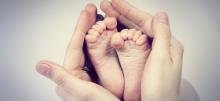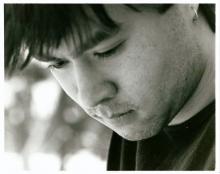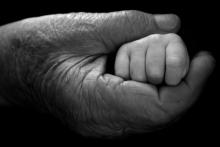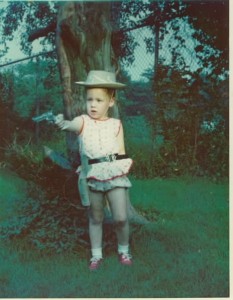Adoption
Recently Russell Moore, dean of the School of Theology at Southern Baptist Theological Seminary, talked with Religion News Service about why more evangelicals should adopt.
Moore states:
At the level of the common good, this is something that all people should be concerned about. But it’s consistent for evangelical Christians to be pro-orphan.
What most churches want, when they start to think about this issue, is a preprogrammed initiative, a set of instructions. I don’t think this issue works that way. It has to be organic. It has to be flexible. It has to create a culture within a congregation.
It will be congregational cultures that start to change with the inclusion of the families who are adopting and fostering and caring for orphans. I think that’s a long-term project over a generation, not something short-term.
Read more here.

In a classic 1960 children's book, a baby bird toddles up to one critter after another asking, "Are you my mother?"
For some babies today, there's no simple answer — biologically or legally.
Advances in artificial reproductive technologies mean a baby could have three "mothers" — the genetic mother, the birth mother and the intended parent, who may be a woman or a man.
Statutes on surrogacy, adoption, divorce and inheritance vary state by state, court by court, decision by decision. For nontraditional couples, the patchwork of laws makes it even more complex. New York allows gay marriage but forbids surrogacy, for example, while Utah permits surrogacy but bans gay marriage.

My neighbors signed my report card.
Having had the same conversation countless times in my life, I have learned that one sentence sums up a cacophony of explanations.
It is tricky, I have found, trying to explain why friends are listed as my emergency contacts, why I wake up Christmas morning in the home of people to whom I am not related, and why my parents — both living — have been anything but.
The separation started so long ago that I struggle to remember exactly when it began. When I was starting middle school my mom’s depression hit hard and fast. My dad, who understands love as a finite commodity, could not muster any for me. Loving her meant giving all of it to try to save her. His attempts and inability to do so created a stress that amplified his MS from inconvenient to disabling.
In a moment, it seemed, they were gone.
We were wealthy and Southern and had everything that went along with both: a close-knit community, punctilious social obligations, and money to stay afloat. In the world in which I grew up, everyone surely knew everything about everyone, but damn if they weren’t polite enough to pretend it was all OK. It was a magnificent masquerade.
But the truth remained: I was an orphan.

Hundreds of thousands of embryos are stored in high-tech storage facilities across the United States. To an increasing number evangelical Christians, that’s hundreds of thousands of babies.
Conservative Christians have long joined hands to oppose abortion, often following the lead of the Roman Catholic Church. But evangelicals are leading the charge in adopting embryos, and encouraging people who have stockpiles of frozen embryos to make them available for adoption.
During a decade-long stretch of federal funding to promote embryo adoption, evangelical organizations received most of the $21 million doled out. That funding was cut in July, but leaders at those organizations say the word is spreading about embryo adoption.
ON A FLIGHT from New York City to Guatemala some years back, I met a woman from Oklahoma on her way to visit her soon-to-be internationally adopted daughter. “I just found them, the Guatemalan children, on the internet and thought they were so beautiful,” she said. She beamed, her blue eyes, carefully painted lips, and cross earrings all sparkling.
Guatemala’s landscape, where wistful clouds cruise above fertile fields and past rumbling volcanoes, reflects the volatility of the country’s tragic history. That history includes a decades-long civil war, ending in 1996, in which more than 200,000 people were killed, mainly by U.S.-backed government forces. To visit the country is to experience not just that history, but also a culture that pioneered astronomy, devised an intricate written language, and erected engineering miracles. But, asked whether she intended to preserve her adoptive daughter’s ties to her homeland, the woman I met on the plane said, “If she wants to see it, we’ll bring her. But really, there’s nothing there.”
The attitude that “there’s nothing there” is, all too frequently, the attitude of missionaries en route to Guatemala. But when Joel Van Dyke arrived in 2003 from Philadelphia, he suspected there was plenty there—there in the country’s slums and in the cities’ bursting garbage dumps, where thousands of people find sustenance every day. He set out to find what was there by learning to ask the right questions of gang members, slum dwellers, sex workers, and the local faith leaders who work with them. To do this, he told Sojourners, he had to adopt the attitude “let’s go see what God is doing in the world and let that color and shape the theological discourse.”

When Becky Morlock was asked to adopt a son from India, she said a prayer. Then she hired a lawyer.
More than four years and a long legal battle later, the one-time missionary has returned to the U.S. as a mom with her son Kyle, who was given to her as a newborn. He was just two days old when his birth mother surrendered him as she was discharged from a hospital in the foothills of the Himalayas.
That was the only time Kyle's two mothers met, and their meeting likely saved his life. It also tested adoption laws in two countries half a world apart.
International adoptions have become more difficult and less frequent with tightening laws aimed to curb child trafficking and adoption fraud. In the last eight years, numbers have dropped from a high of 22,991 in 2004 to 9,319 last year, according the U.S. State Department.
 Homecoming
Homecoming
By Stacy Barton
Suddenly you are there,
the smell of womanhood about you.
Hi Mom.
Ripe with dance,
your body moves like words on a poets tongue.
As many of us head back to work or school and continue to recover from our post-Thanksgiving-turkey-induced food comas, let us remember that November is National Adoption Month. While we can be thankful that over 1.5 million children have found permanent homes through adoption (according to 2000 census), there are still 107,000 young people awaiting adoption in the U.S. foster care system.
National Adoption Month, which began in 1995 under President Clinton, seeks to celebrate and raise awareness about adoption around the country. Today, the White House is sponsoring an event to honor National Adoption Month with “senior Administration officials, members of the President’s Cabinet, adoption and child welfare experts and advocates, and religious leaders,” according to the White House blog for Faith-Based and Neighborhood Partnerships.
And I'll be your new tour guide here at God's Politics.
Some of you may know me by my more official byline, Cathleen Falsani. I've been a contributing editor and columnist for Sojourners Magazine for several years now, writing a column every other month called "Godstuff" and also have contributed from time to time to this'a'here blog.
Regarding the "Overheard" quote in the April 2007 issue: The continuing conversations in many denominations also involve millions of gay, lesbian, bisexual, and transgender persons who are being in
